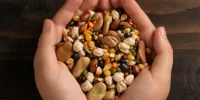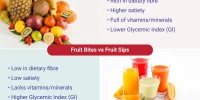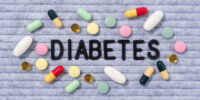Heart-Healthy Diet: Foods to Include and Avoid
Heart-Healthy Diet: Foods to Include and Avoid

The Cornerstones of a Heart-Healthy Diet: Foods to Include
1. Fruits and Vegetables
Benefits: Fruits and vegetables are rich in vitamins, minerals, and dietary fiber, offering heart-protective antioxidants essential for maintaining heart health.
Include: Incorporate a variety of seasonal fresh fruits like oranges, apples, pomegranates, and guavas.
Vegetables such as leafy greens (spinach, moringa, kale, and cabbage), gourd vegetables (bottle gourds, bitter gourd, ridge gourd, and ash gourd), root vegetables like carrots, beetroot should be preferred over tubers like potato, yam, colocasia and cassava.
If you have heart disease and diabetes, avoid high-calorie fruits like bananas and mangoes.
Tips: Prefer raw whole fruits over canned fruits and juices, consume salads before main meals, and include a daily serving of fresh, cold-pressed vegetable juice.
2. Whole Grains
Benefits: Whole grains are excellent sources of fiber, which helps regulate blood pressure and cholesterol levels, reducing the risk of heart disease.
Include Choose whole grains like whole-wheat flour, brown rice, millet, broken wheat, and rolled oats. Avoid refined carbohydrates like those found in maida-based products (e.g., naan, kulcha, pizza).
Tips: Boost fiber content by adding powdered wheat bran or oats to batters or to roti and paratha dough.
3. Healthy Fats
Benefits: Unsaturated fats, especially omega-3 fatty acids, play a crucial role in reducing inflammation and improving cholesterol levels, thereby protecting heart health.
Include: Use a combination of cooking oils, such as olive oil, mustard oil, groundnut oil, and sesame oil, and change the oil type monthly. Include fatty fish and moderate amounts of cow’s ghee in your diet.
Tips: Limit oil consumption to half a liter per month. You can substitute some of it with ghee within the same limit.
4. Low-Fat Protein
Benefits: Lean proteins support heart health by providing essential nutrients without the excess saturated fat and cholesterol.
Include: Opt for lean meats, poultry, fatty fish (such as salmon, mackerel, herring, and sardines), and plant-based proteins like dals, beans nuts seeds, and low-fat dairy products.
Tips: Prefer egg whites or whole eggs in moderation (not exceeding six per week) and prepare food with minimal oil. Incorporate nuts and seeds in moderation.
5. Herbs and Spices Instead of Salt
Benefits: Reducing sodium intake is critical for managing blood pressure and decreasing the risk of heart disease
Recommendation: Limit sodium intake to less than 2300 mg per day. Be aware of hidden sodium in processed foods and seasonings.
Tips: Enhance the flavour of your food with herbs and spices like mint, cinnamon, turmeric, fenugreek, ginger, and garlic instead of salt. Read food labels to monitor sodium content in packaged foods.

Foods to Avoid for a Healthy Heart
- Packaged and Processed Foods Avoid cookies, pastries, chocolates, biscuits, and sugary drinks, as they are high in sugar and refined carbs.
- Fatty Foods: Limit full-cream milk and dairy products, vanaspati oil, butter, and coconut oil. Minimize the consumption of deep-fried items like pakoras, pooris, French fries, and papads.
- Red and Processed Meats:Avoid red meats, organ meats, crabs, prawns, and processed meats like shawarma, nuggets, and sausages.
- High-Sodium Foods: Avoid instant soups, salty chips, farsan, condiments like ketchup and mayonnaise, and packaged dressings.
- Alcohol: Avoid alcohol consumption, as it can increase blood pressure and lead to heart-related complications.
Adopting a heart-healthy diet is not just a temporary change but a long-term commitment to better health. By focusing on nutrient-rich foods like fruits, vegetables, whole grains, healthy fats, and lean proteins, and avoiding unhealthy options like processed foods, fatty meats, and high-sodium products, you can significantly reduce your risk of cardiovascular disease.
2. Dalal, J., Hiremath, M. S., Das, M. K., et al. (2016).Vascular Disease in Young Indians (20-40 years): Role of Ischemic Heart Disease.J Clin Diagn Res, 10(9), OE08-OE12. doi: 10.7860/JCDR/2016/20206.8517.
3. National Heart, Lung, and Blood Institute. (March 24, 2022). Heart-Healthy Living: Choose Heart-Healthy Foods. Accessed August 22, 2024. Available at https://www.nhlbi.nih.gov/health/heart-healthy-living/healthy-foods.
4. Heart Foundation. (February 5, 2024). Healthy Eating to Protect Your Heart. Accessed August 22, 2024. Available at https://www.heartfoundation.org.au/healthy-living/healthy-eating/healthy-eating-to-protect-your-heart.
5. ICMR-NIN Expert Committee. Dietary Guidelines for Indians - 2024. Accessed August 22, 2024. Available at https://www.nin.res.in/dietaryguidelines2024.html.
Get a Call Back
Categories
- Life Style Modification
- Cardiac
Health Blogs
The Benefits of Early Dinners: A Blend of Tradition and Science
The Benefits of Early Dinners: A Blend of Tradition and Science The Benefits of Early Dinners: A Blend of Tradition and Science In today’s fast-paced world, meal timing often
Kitchen Cures: Healing the Natural Way with Grandma’s Wisdom
Kitchen Cures: Healing the Natural Way with Grandma’s Wisdom Kitchen Cures: Healing the Natural Way with Grandma’s Wisdom Who doesn’t love quick, easy solutions to nagging he
Why Eating Nuts Before Meals is a Smart Choice
Why Eating Nuts Before Meals is a Smart Choice Why Eating Nuts Before Meals is a Smart Choice Adding a handful of nuts to the diet, especially before meals, can provide several hea
The Surprising Secret to Coffee’s Heart-Healthy Benefits: It is All About Timing
The Surprising Secret to Coffee’s Heart-Healthy Benefits: It is All About Timing The Surprising Secret to Coffee’s Heart-Healthy Benefits: It is All About Timing For many, the
5 Simple Morning Habits for a Healthier Start to the Year
5 Simple Morning Habits for a Healthier Start to the Year 5 Simple Morning Habits for a Healthier Start to the Year A new year offers a fresh opportunity to embrace healthier habit
Type 2 Diabetes and Mental Health: The Connection
Type 2 Diabetes and Mental Health: The Connection Type 2 Diabetes and Mental Health: The Connection Type 2 diabetes mellitus (T2DM) is a chronic condition affecting millions worldw
Is Sugar Really the Enemy? Unpacking Diabetes Myths
Is Sugar Really the Enemy? Unpacking Diabetes Myths Is Sugar Really the Enemy? Unpacking Diabetes Myths Diabetes is a growing public health concern worldwide, with type 2 diabetes
Tailoring the Dose of Exercise for Effective Glycemic Management in Type 2 Diabetes
Tailoring the Dose of Exercise for Effective Glycemic Management in Type 2 Diabetes Tailoring the Dose of Exercise for Effective Glycemic Management in Type 2 Diabetes Type 2 diabe
Ganesh Chaturthi and Diabetes: A Balancing Act
Ganesh Chaturthi and Diabetes: A Balancing Act Ganesh Chaturthi and Diabetes: A Balancing Act Ganesh Chaturthi, a vibrant and beloved Indian festival celebrated with great enthusia
Asthma in Children: Symptoms, Triggers, and Management
Asthma in Children: Symptoms, Triggers, and Management Asthma in Children: Symptoms, Triggers, and Management Asthma is a significant health concern among children in India, with i
Heart-Healthy Diet: Foods to Include and Avoid
Heart-Healthy Diet: Foods to Include and Avoid Heart-Healthy Diet: Foods to Include and Avoid India’s traditional diet is often heavy on carbohydrates, high-fat dairy product
Can I Donate Blood if I’m Diabetic?
Can I Donate Blood if I’m Diabetic? Can I Donate Blood if I’m Diabetic? If you’re diabetic, you may wonder whether you can donate blood. The good news is that inmany
Top Foods for Managing High Blood Pressure
Top Foods for Managing High Blood Pressure Top Foods for Managing High Blood Pressure High blood pressure is a common condition that affects millions of people worldwide. If left u
Loneliness and Diabetes: How Social Isolation Raises Your Risk
Loneliness and Diabetes: How Social Isolation Raises Your Risk Loneliness is a mental health problem that has been proven to have a significant impact on quality of life and health
Navigating Winter with Asthma in India: Tips for a Breath-Friendly Season
Navigating Winter with Asthma in India: Tips for a Breath-Friendly Season As winter sets in across India, individuals with asthma face unique challenges in managing their respirato
What is the optimal level of low-density lipoprotein (LDL) cholesterol for individuals living with heart disease?
What is the optimal level of low-density lipoprotein (LDL) cholesterol for individuals living with heart disease? LDL is considered as “bad” cholesterol as it accumulates in th
Diwali Delights: Navigating Healthy Celebration with 10 Essential Tips
Diwali Delights: Navigating Healthy Celebration with 10 Essential Tips Diwali, the festival of lights, is a time of joy, togetherness, and of course, indulgence in delicious sweets
Coping with COPD: Tips for Living Well with Chronic Obstructive Pulmonary Disease
Coping with COPD: Tips for Living Well with Chronic Obstructive Pulmonary Disease Chronic Obstructive Pulmonary Disease (COPD) is a chronic respiratory condition that can significa
How to live a healthy life after cancer?
How to live a healthy life after cancer? Cancer is definitely a debilitating disease that compromises our life’s quality and length of survival.The experience with cancer is uniq
Managing Glucose and Stress in Women with Type 2 Diabetes
Managing Glucose and Stress in Women with Type 2 Diabetes: The Power of Aerobic Exercise and Deep Breathing Diabetes is a type of metabolic disease. It has a strong connection with
Safe and Effective Exercises for Asthma Management
Safe and Effective Exercises for Asthma Management Safe and Effective Exercises for Asthma Management Asthma is a chronic lung condition that affects the airways, making it difficu






















